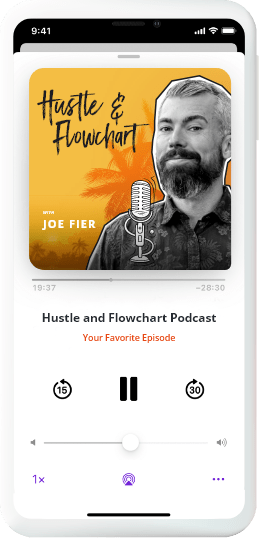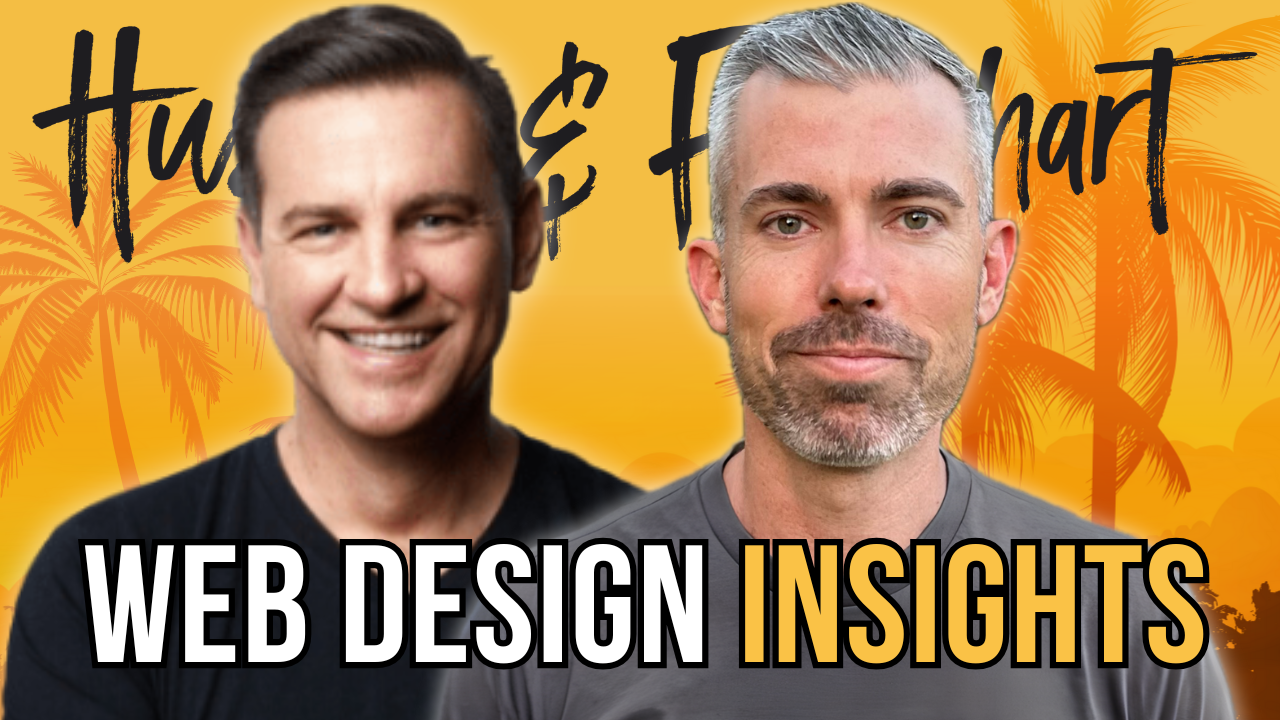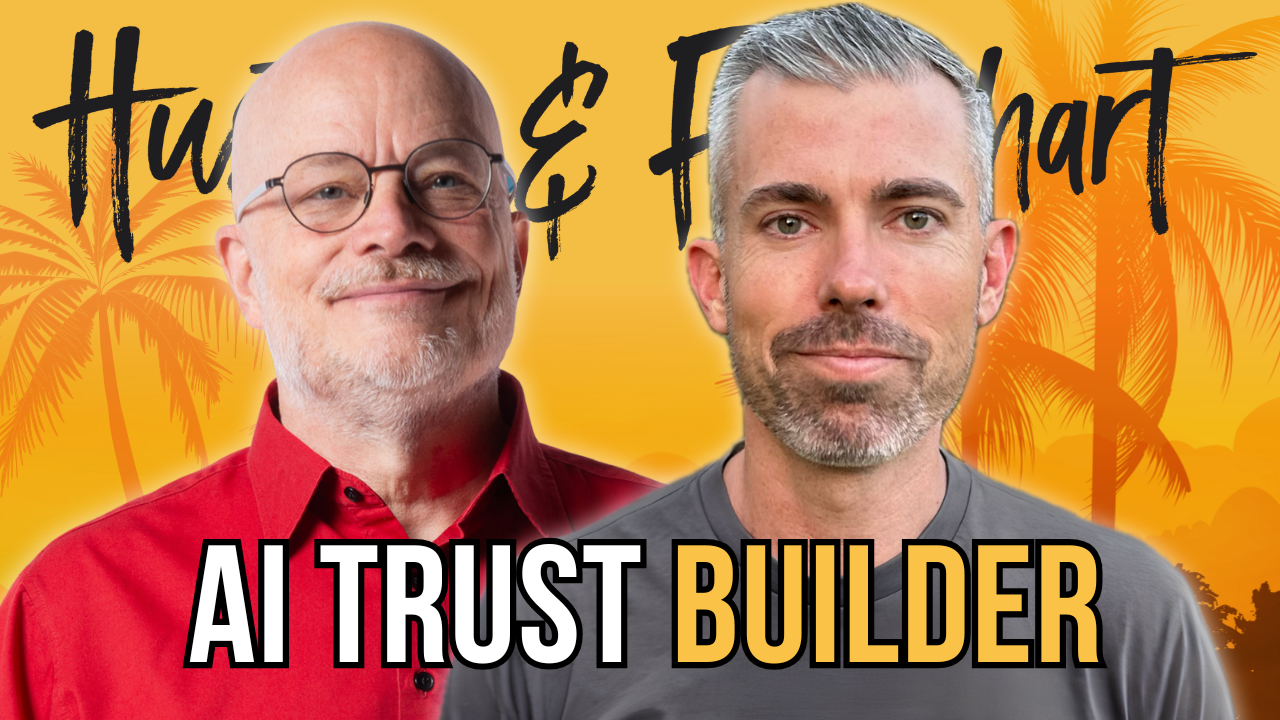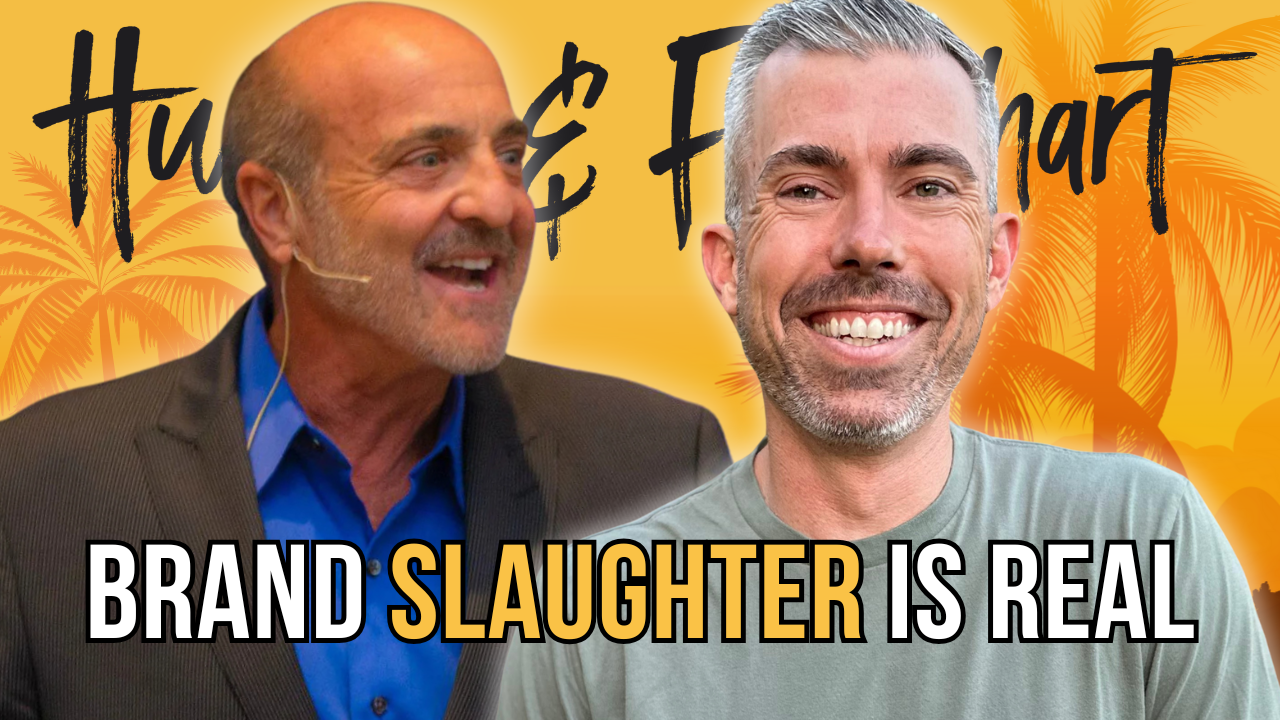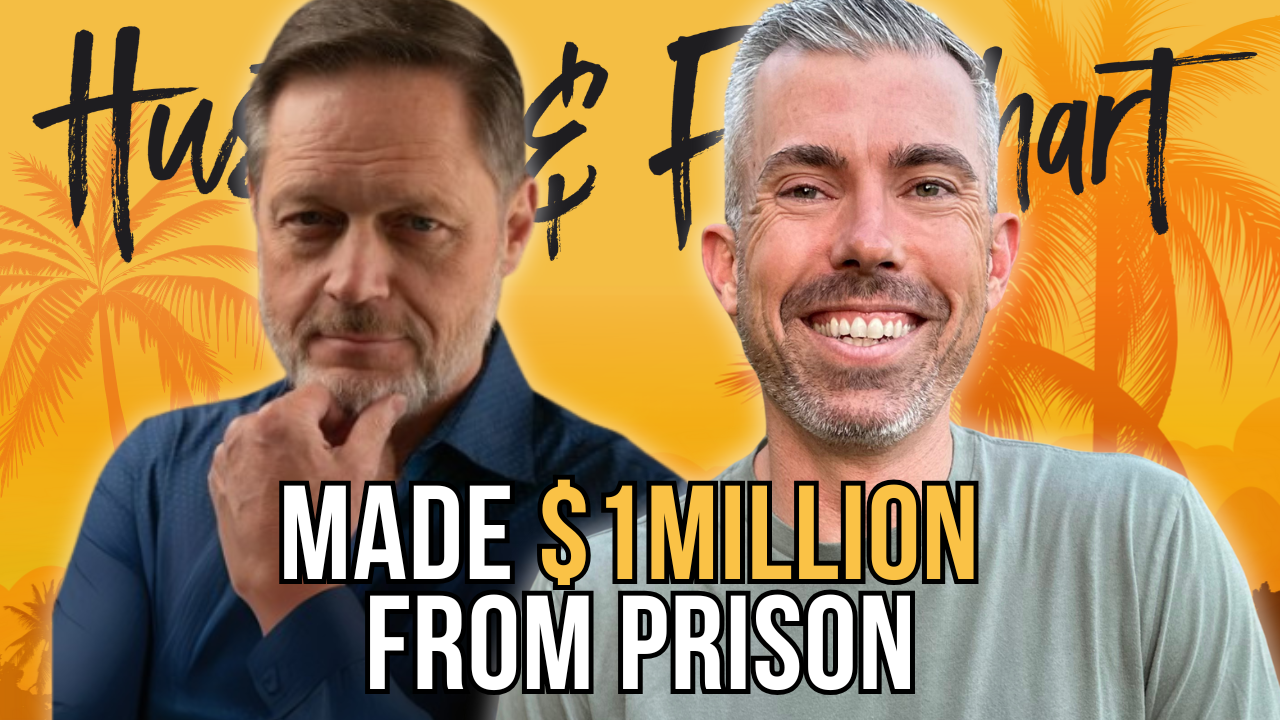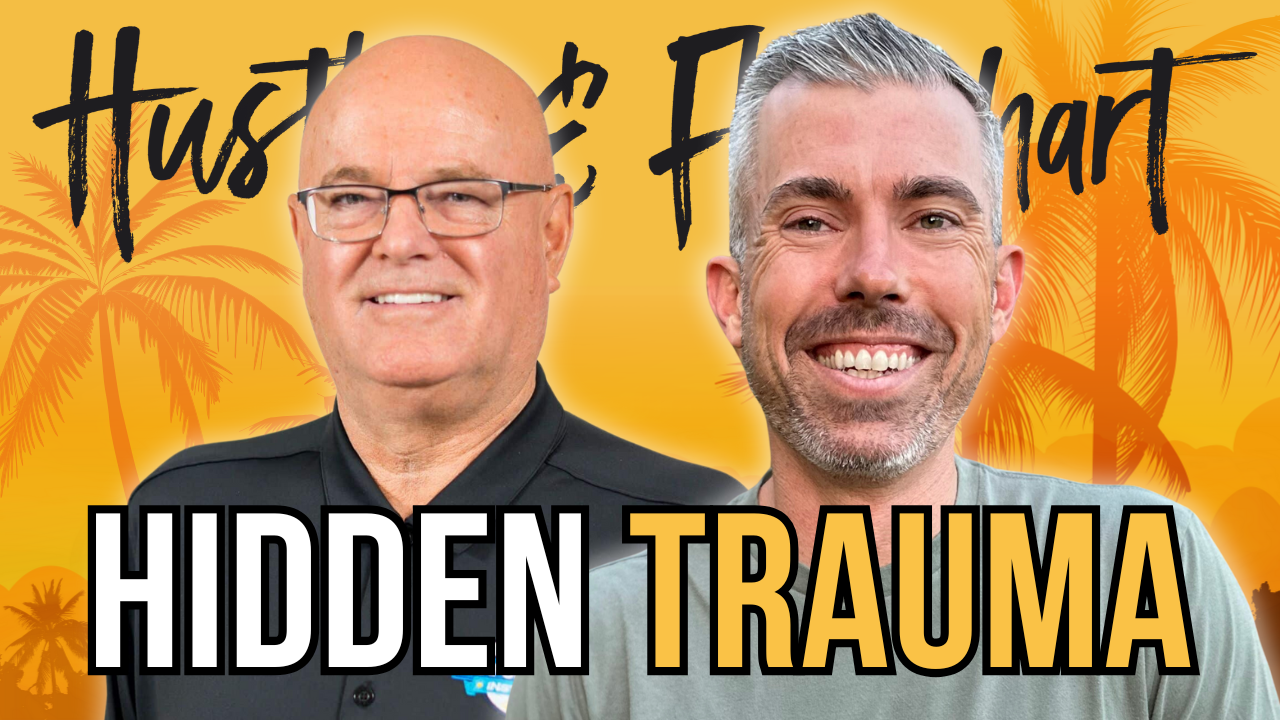Today’s podcast episode brought a story filled with grit, wisdom, and modern tech, featuring my good friend Greg Reid. Greg is a bestselling author, founder of the Secret Knock event, and the guy who quite literally did the impossible for his son. This episode shares how Greg steps up when everyone else freezes, how he worked with the Napoleon Hill Foundation, his unique book writing process, and how he used AI to help his son recover from a serious brain injury. Whether you’re looking for motivation, practical business lessons, or a stunning example of new technology meeting old-fashioned commitment, you’ll get plenty from this episode.
Table of Contents
ToggleWhat This Episode Is About
Greg Reid knows how to move fast and never give up. We kicked off the episode with Greg’s incredible story about saving his son after doctors told their family that there was no hope. Instead of waiting, Greg threw every tool and connection he had at the problem, including artificial intelligence. Beyond this personal side, Greg talks about why “action” is the most important part of the “Law of Attraction.” He opens up about his time working for others versus finally focusing on his own work and success. Plus, we get his method for writing over 150 books without being a great writer himself.
We also talk about some behind-the-scenes stories from Hollywood, what makes an entrepreneur thrive (or not), and the simple rules Greg uses to open new opportunities and shut out distractions. Expect tales of business, lessons from legends, and even a real-life update from Greg's son, who joins us at the end of the show.
Greg Reid’s Story of Perseverance and AI
After his son suffered a major brain injury in a motorcycle accident, doctors told Greg that his son would probably never talk again and would remain in a vegetative state. Greg refused to accept this answer. He took massive action, using everything he learned across his business and writing career. Greg turned to artificial intelligence. He gathered his son’s old audition tapes (his son is an actor) and built an AI clone using his son’s own voice. While his son lay in a coma, Greg used this AI tool to speak positive, specific messages to him—helping lead his brain back to recovery.
One year after the accident, Greg’s son made a full recovery—the first known case at his age with such a severe injury. Greg believes connections from his business world and determination gave his family the chance no one else thought was possible.
Key Takeaway: Never stop at the first “no.” Sometimes grit, creativity, and the latest tools combine to create miracles.
The Action in the Law of Attraction
Greg says, “It’s the action in the law of attraction that makes our dreams reality.” Many people talk and hope, but only a few take action and finish projects. For years, Greg would take on other people’s projects because he was known as someone who delivered results. But he noticed that his own goals took a back seat. Eventually, he learned to say no unless he knew he could finish a project and that it matched his priorities.
He recommends only saying yes to projects you know you can finish, not just want or hope you can complete.
Key Takeaway: Dreaming isn’t enough. Nothing happens without real action. Closely guard your time and energy, and only commit to things you can fully deliver.
Saying No and Focusing on Your Own Path
Greg spent nearly 20 years helping with other people’s big projects, including producing a movie about the founder of Make-A-Wish and working for the Napoleon Hill Foundation. While this was rewarding, he looked back and realized his own dreams had been pushed aside. He noticed most entrepreneurs are natural problem solvers and often jump to help out when they see they can fix something. But this can be a trap. Helping everyone else can leave your own goals neglected.
Today, Greg only says yes to opportunities when they align with his own path or clearly serve a higher good.
Key Takeaway: Helping others is great, but never let your own dreams and purpose fade away while working on someone else’s vision.
The Secret to Writing 157 Books
Despite his success, Greg admits he’s dyslexic and can’t spell or write very well. So how did he write 157 books in 45 languages? He plays to his strengths. Greg is a strong talker, and he partners with top ghostwriters. He explains his idea out loud, and his team does the writing. He credits his unusual thinking style (thanks to dyslexia and ADD) for letting him see the end goal and work backward to create a clear plan.
He also started a publishing company, Joint Venture Publishing, to help others use the same system to turn ideas into bestselling books.
Useful Quote: “Work your strengths, hire your weaknesses.”
Where to learn more:
Why Most People Get Hollywood Wrong
In Hollywood, a “yes” often means “no.” Greg learned from Jules, the founder of Showtime, that in the movie business, when someone says “yes, babe, we’re going to make you a star,” it’s just a nice way to avoid saying no. The only real answer that matters is maybe, because that means there’s still a chance.
He shares how important it is to surround yourself with people who already have what you want and to approach them with very specific requests—like asking for just 12.5 minutes of their time with one clear question. This makes it much easier for busy, successful people to help you.
Key Takeaway: Always seek to connect with specific, successful people. Make precise, respectful requests—they get noticed.
Lessons from the Napoleon Hill Foundation
Greg was handpicked by the Napoleon Hill Foundation (the folks behind “Think and Grow Rich”) and given a “golden ticket” to meet anyone he wanted for research on new success books. He co-authored “Three Feet From Gold,” worked with legends like Bob Proctor, and helped write “Stickability” and “Thoughts Are Things.”
A few big lessons came out of this experience:
- Success starts with fast decisions. Napoleon Hill, when given a life-changing offer from Andrew Carnegie, accepted within 29 seconds. Most people hesitate and miss out on opportunities.
- Persistence is key. Greg was rejected by 268 publishers before his first book was accepted (after changing the title and getting a ghostwriter).
Useful Quote: “A dream written down with a date becomes a goal. A goal broken into steps becomes a plan. A plan backed by action makes your dreams come true.”
Where to learn more:
Seeking Counsel Over Opinions
Greg says successful people seek counsel, not opinions. Opinions come from people who haven’t done what you want to do. Counsel comes from those with real experience. For example, if you want to be a writer, listen to someone who’s sold millions of books, not your uncle who hasn’t written one.
He also stresses the importance of showing mentors your results. If you ask for advice, try it, and then report back, they’re far more likely to help you again.
Key Takeaway: Seek wisdom from those who’ve been where you want to go. Ignore the opinions of those who haven’t.
Simple Business Strategies from Billionaires
Greg shares a story from a billionaire named Brian, who made his fortune by buying cheap land outside of growing towns, leasing it to farmers, and then selling it to big stores when the city expanded. Simple steps, repeated with discipline, can lead to massive results.
Another example is from the world of sports marketing, where dirt on an athlete’s shoe could multiply its value. Small details—when leveraged—can make a big difference.
Key Takeaway: Often, the biggest wins come from simple, repeatable strategies, not complicated plans.
Using Small Steps for Big Goals
Tony Gwynn, San Diego Padres legend, focused on hitting singles instead of always swinging for the fences. As entrepreneurs, focusing on small wins, repeated over time, creates real momentum. It’s easy to chase excitement and try for home runs, but steady singles are what build a career or business.
Chick-fil-A founder S. Truett Cathy shared a mountain climbing analogy—successful people tie themselves off with smaller, secure wins as they climb, so they never fall all the way to the bottom. Scalable, safe steps matter.
Key Takeaway: Regular, small steps build security and success over time.
Greg’s Final Lesson: Helping His Son with AI
Greg’s story about saving his son brings together all these lessons. Technology, connections, relentless effort, and belief can combine to make miracles. Using his son’s own AI clone, Greg brought his son’s brain back piece by piece. A year later, his son is back to living a normal life.
Greg’s son even joins the show to share his positive mantra, proof that big dreams and hard work can change lives.
Key Links and Resources
Greg Reid’s story sets a high bar for anyone who wants to achieve more in life or business. Whether you’re facing huge challenges, wondering how to use new technology, or just looking for ways to move faster toward your goals, his advice sticks: act fast, keep moving, work your strengths, and seek wisdom from those who’ve already won. Greg proves that sometimes, even the impossible just takes a little longer—and a lot of persistence. If you want to connect with Greg, check out the links above, and remember: action is everything.
Two Other Episodes You Should Check Out
- The AI Gold Rush: Most Entrepreneurs Are Failing—Here’s What Only 0.8% Understand!
- I Made An AI Clone Of Myself with Joe Fier
Connect with Joe Fier
- What if you could have a FREE personal mentor on-demand?! With Joe's Hustle & Flowchart AI clone, you can tap into the knowledge from over 600 episodes any time! Whether you need advice on scaling, marketing, or productivity, my AI clone is here to help.
- Want us to build your clone for you? We’ll handle setup, testing, and integration so you can launch fast. Head to HustleandFlowchart.com/interest to get started!
- Hubspot has launched a whole new suite of AI Tools, check them on the Hubspot.com
- Check out other podcasts on the HubSpot Podcast Network
- We want to hear from you. Send us the One Thing you want to hear on the show.
- Connect with Joe on LinkedIn and Instagram
- Subscribe to the YouTube Channel
- Contact Joe: joe@hustleandflowchart.com
Thanks for tuning into this episode of the Hustle & Flowchart Podcast!
If the information in these conversations and interviews have helped you in your business journey, please head over to iTunes (or wherever you listen), subscribe to the show, and leave me an honest review.
Your reviews and feedback will not only help me continue to deliver great, helpful content, but it will also help me reach even more amazing entrepreneurs just like you!







